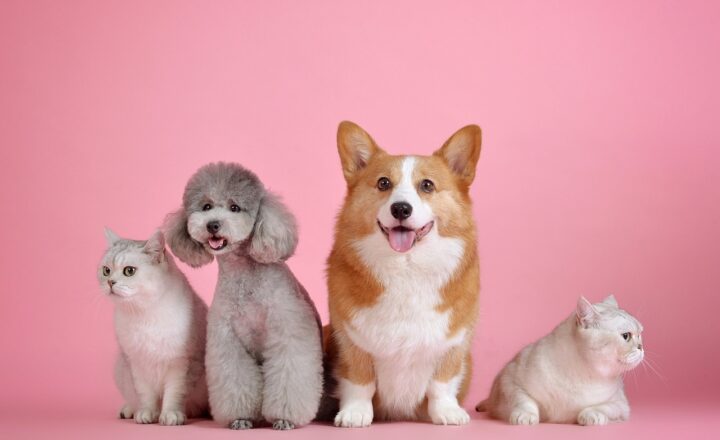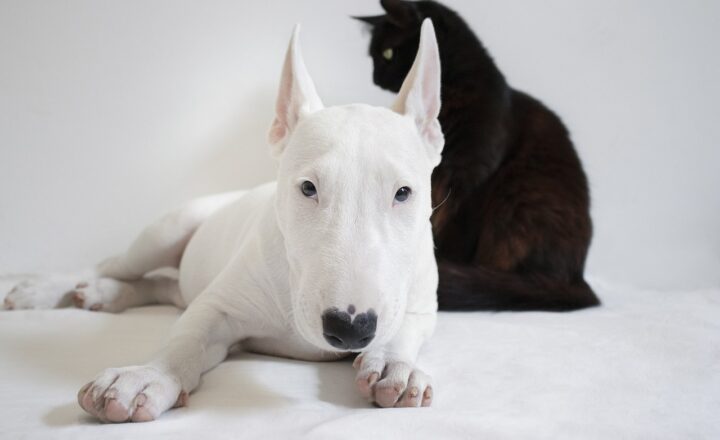The Secrets Behind Dogs’ Loyalty: Exploring the Science of Canine Companionship and Bonding
November 13, 2024

Dogs are often called “man’s best friend,” a title that resonates deeply with pet owners and animal lovers alike. Their unwavering loyalty, affection, and companionship create an almost unbreakable bond between them and their humans. But what lies behind this incredible loyalty? Is it in their nature, or is it the bond cultivated through care and companionship? This article will delve into the science of canine companionship, exploring behaviors, emotional connections, and psychological factors that contribute to the loyalty of dogs.
1. The Evolution of the Human-Dog Relationship
The relationship between humans and dogs spans thousands of years, dating back to the time when wolves began to form partnerships with early humans. Though scientifically debated, many experts agree that the domestication of dogs began around 20,000 to 40,000 years ago. Over time, dogs adapted to coexist with humans, leading to the development of distinct traits that now define our beloved companions.
– Genetic Changes: Through selective breeding, humans have influenced the behavioral traits of dogs to foster companionship. Breeds have been developed with traits such as affection and loyalty, emphasizing traits that promote bonding and social interaction.
– Behavioral Adaptations: Over generations, dogs learned to interpret human gestures and emotions, making them excellent companions. Many studies have shown that dogs can recognize human facial expressions, respond empathetically, and communicate their own emotions in ways that strengthen their bond with us.
2. The Science of Canine Loyalty
Canine loyalty involves various biological, psychological, and behavioral factors that allow dogs to form deep emotional connections with their human companions. Here’s a closer look at how science explains the loyalty of dogs:
– Oxytocin Release: Known as the “bonding hormone,” oxytocin plays a significant role in human-dog relationships. When a dog interacts affectionately with its owner—whether through petting, eye contact, or play—oxytocin is released in both the dog and human’s brains. This chemical response reinforces trust and attachment, fostering loyalty.
– Attachment Theory: A prominent psychological theory, Attachment Theory suggests that dogs develop a secure bond with their owners similar to the way children bond with their primary caregivers. Research has shown that dogs exhibit attachment behaviors, such as seeking proximity and exhibiting separation anxiety when away from their owners. This attachment forms the foundation of their loyalty.
– Social Intelligence: Dogs possess remarkable social intelligence, allowing them to read human cues and adapt their behavior accordingly. They understand our emotions and can respond empathetically, increasing the emotional connection that contributes to their loyalty.
3. Building a Lasting Bond with Your Dog
To foster loyalty effectively, it’s essential to take proactive steps in building a solid relationship with your dog. Here are some strategies to enhance the bond between you and your furry companion:
– Positive Reinforcement Training: Use positive reinforcement techniques to train your dog. Providing treats, verbal praise, and affection for desired behaviors not only strengthens learning but also builds trust and loyalty.
– Quality Time Together: Spend quality time with your dog both indoors and outdoors. Engage in activities that they enjoy, such as playing fetch, going for walks, or simply lounging together. This interaction enhances the emotional connection, deepening their sense of loyalty.
– Consistent Communication: Dogs thrive on routine, so maintaining consistent communication through commands, cues, and body language helps them feel secure. Clear communication fosters mutual understanding and loyalty.
– Socialization in Various Environments: Expose your dog to different experiences, environments, and interactions with other dogs and people. This exposure helps them acclimate socially and reduces anxiety, encouraging a stronger bond with you.
4. Understanding the Loyalty Spectrum
Not all dogs express loyalty in the same way. Just as human personalities vary, so do canine temperaments and behaviors. Understanding where your dog falls on the loyalty spectrum can help you nurture their needs:
– The Velcro Dog: These dogs stick close to their owners and tend to exhibit separation anxiety when left alone. They require reassurance and regular companionship to feel secure.
– The Independent Dog: Some dogs may display more independence and may not seek constant companionship. However, this should not be mistaken for a lack of loyalty; they may still bond deeply in their own unique way.
– The Social Butterfly: Dogs that enjoy socializing with other dogs and people may show loyalty to their owners by exhibiting protective or attentive behaviors during interactions. They thrive on social engagement.
Understanding these personality traits allows owners to foster loyalty by respecting their dog’s unique preferences and comfort levels.
5. The Significance of Loyalty in a Dog’s Life
Dogs derive significant benefits from their bond of loyalty with humans. Here’s how loyalty enriches their lives:
– Emotional Well-Being: Strong loyalty leads to security and emotional stability, making dogs feel safe and loved, which in turn promotes good mental health.
– Behavioral Stability: Dogs that feel a strong bond with their owners tend to exhibit fewer behavioral issues, as they feel a sense of belonging and purpose.
– Enhanced Quality of Life: Loyal dogs are more likely to enjoy positive experiences with their owners, maximizing joy and fulfillment in their daily lives.
In essence, the loyalty built through companionship enhances the overall quality of life for dogs, making them happier and healthier pets.
Conclusion
The loyalty of dogs is a remarkable phenomenon rooted in centuries of evolution, biology, and psychological principles. Understanding and nurturing this bond enhances the human-canine relationship, making the experience of companionship even more rewarding. By investing time, love, and care into building trust, we not only benefit our dogs but also enrich our own lives through their loyalty. Whether your dog is a Velcro companion or an independent spirit, their loyalty remains a testament to the profound connection that exists between species. Cherish this bond and strive to deepen it every day. After all, it’s in this loyalty that the heartwarming magic of the human-dog relationship truly thrives.







